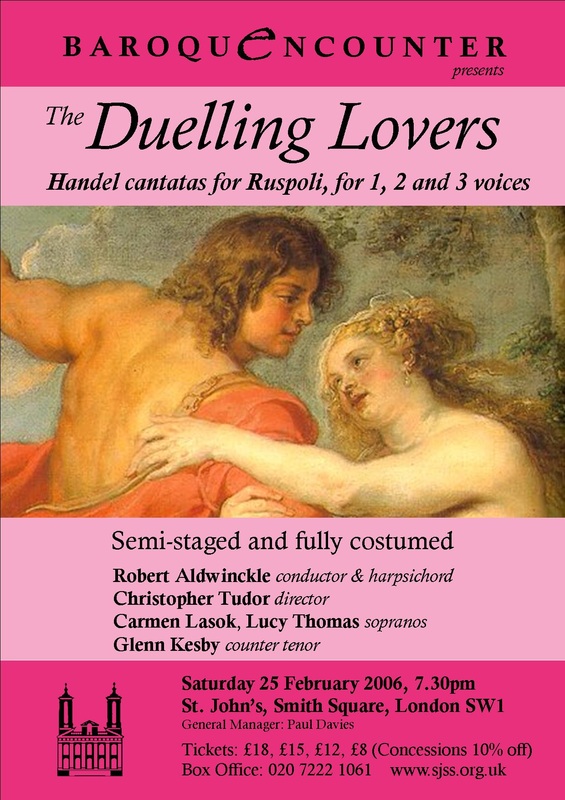THE DUELLING LOVERS - Handel cantatas for Ruspoli
Baroque Encounter has on occasion ventured into the theatrical world of costumed, choreographed and semi-staged productions. Below is one of those productions involving larger forces of performers (both on- and off-stage). These are all available to be revived - please contact us to discuss!
|
Three of Handel's early dramatic cantatas for one, two and three voices are staged in a fully costumed concert with a chamber ensemble of continuo (harpsichord and cello), strings and a baroque trumpet. Composed during Handel's time in Italy, these cantatas were written for his most important Roman patron, the Marchese Francesco Ruspoli. Handel was the musician in residence at Ruspoli's Palazzo Bonelli in Rome. The cantatas were performed at the Arcadian Academy of which Ruspoli was a leading member.
|
